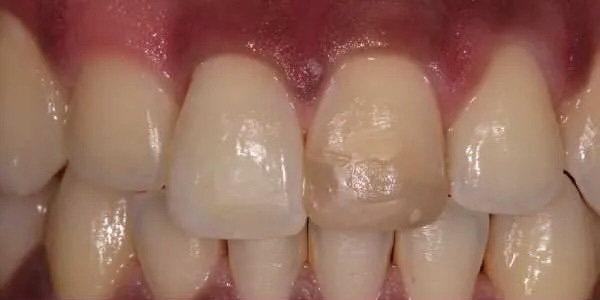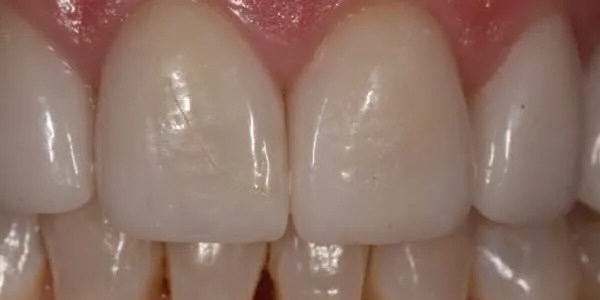Custom Dental Crowns in Brickell for a Healthy, Beautiful Smile
At HQ Dontics, we specialize in crafting custom dental crowns and caps designed to restore the functionality and appearance of your teeth. Whether you’re dealing with a damaged, decayed, or weakened tooth, dental crowns offer a long-lasting, durable solution that blends seamlessly with your natural teeth.
Our team of experienced dental professionals uses advanced techniques and high-quality materials to ensure that each dental crown provides both strength and aesthetics. We are committed to helping you achieve a healthy, confident smile that enhances your overall oral health.
What is a Dental Crown?
A dental crown is a type of restoration we use in dentistry, also called a cap in common terms. A dental cap or crown is used to cover the whole portion of the tooth and protect it from fractures. It's typically used when a lot of tooth structure has been lost due to decay or fracture. Alternatives to dental crowns vary in size. A dental crown can be a full crown, a half crown, or a 3/4 crown. Our goal is to protect your tooth from further fractures.
There are three different types of dental crowns: a fully metallic dental crown, a porcelain-fused-to-metal type, and an all-ceramic type. Within the all-ceramic type, there are multiple different ceramics, and for metal, we have many different alloys. Nowadays, ceramic crowns are dominating treatments.
Is a Dental Crown Necessary After a Root Canal?
This is a very important question because if you have a root canal on a molar or premolar, the back teeth you use to chew, a dental crown is definitely needed. After a root canal, the nerve inside the tooth is removed, which means the tooth will lose its natural hydration.
Eventually, your tooth will become brittle and dehydrated, and a dental crown will prevent it from fracturing or splitting. Using a dental crown as a brace for your tooth is crucial for your chewing molars and premolars. For front teeth, after a root canal, depending on how much tooth structure is lost, crowns may not be necessary.
What is the Procedure for Getting a Dental Crown?
The procedure for getting a dental crown is quite simple. We need to create enough space for the material of the cap to sit on the tooth without changing its volume. This requires reducing a small amount of your tooth, about 1 to 1.5 mm up to 2 mm of tooth structure, which is not much in perspective.
We need to create the proper space for the crown to sit without making your tooth look awkward. Getting a dental crown should not hurt. You will be locally anesthetized for this procedure, so there should be no pain during the removal of tooth structure, assuming the nerve is healthy.
What are the Consequences of Getting a Dental Crown?
The consequences of getting a dental crown include removing a small amount of tooth structure around the tooth, as mentioned before. Getting a dental crown is sometimes irreversible, and a few people may need a root canal after getting a dental crown. Removing tooth structure creates a small amount of trauma on the nerve. About 12% of crowns will eventually require a root canal.
Are Dental Crowns Used for Kids?
For kids, traditional dental crowns are probably not indicated. Instead, we typically use stainless steel crowns because those teeth will eventually be lost. If it's a permanent tooth and a child needs a dental crown, it's likely due to significant decay, which we should try to avoid.
Do Crowns Look Like Natural Teeth?
Crowns do look like normal teeth. We use artistic methods to make a crown look as close as possible to your natural dentition.


Can You Get Cavities on Teeth with Crowns?
You can get cavities on teeth that have been crowned. The margin of the crown, where it sits and seals your tooth, can be too large for bacteria to enter. Bacteria can colonize those areas. Without proper hygiene and regular checkups, cavities can occur on dental crowns.
How Do You Take Care of Dental Crowns?
The ideal way to take care of your dental crowns is by attending regular checkups. If we detect any problems with the dental crown early, the solution is much easier.
How Long Does a Dental Crown Last?
A dental crown typically lasts about 10 years. Of course, it can last longer depending on the conditions. Factors such as whether the tooth has a root canal, how much tooth structure is lost, and the size and length of the roots where the crown is placed impact the crown's longevity. The overall strength of the tooth is important, and typically, a dental crown lasts about 10-15 years.
Does Insurance Cover Dental Crowns?
Typically, insurance will cover part of a dental crown but never the entire cost. Because there are many different types of crowns and materials, dental insurance unfortunately does not cover much of it. However, any coverage is beneficial.
Why would I need a dental crown?
There are a number of reasons why we may recommend that you get a crown: Following a root canal treatment, your tooth may become very brittle and discolored. Your tooth will be more prone to breakage, so a crown may be recommended to help prevent the tooth from breaking and also to cover up any darkness if it is in a front tooth.
Teeth with very large fillings often require a crown. The crown helps hold the tooth together and to provide strength to the weakened tooth.
Will my dental insurance cover dental crowns?
Typically, insurance will cover part of a dental crown but never the entire cost. Because there are many different types of crowns and materials, dental insurance unfortunately does not cover much of it. However, any coverage is beneficial.
If you live in or near Miami, FL, and are looking for dental care, contact us at (229) 508-0551 to set an appointment. Our staff would love to talk with you!
Don't forget to follow us on social media: Facebook, Instagram.

